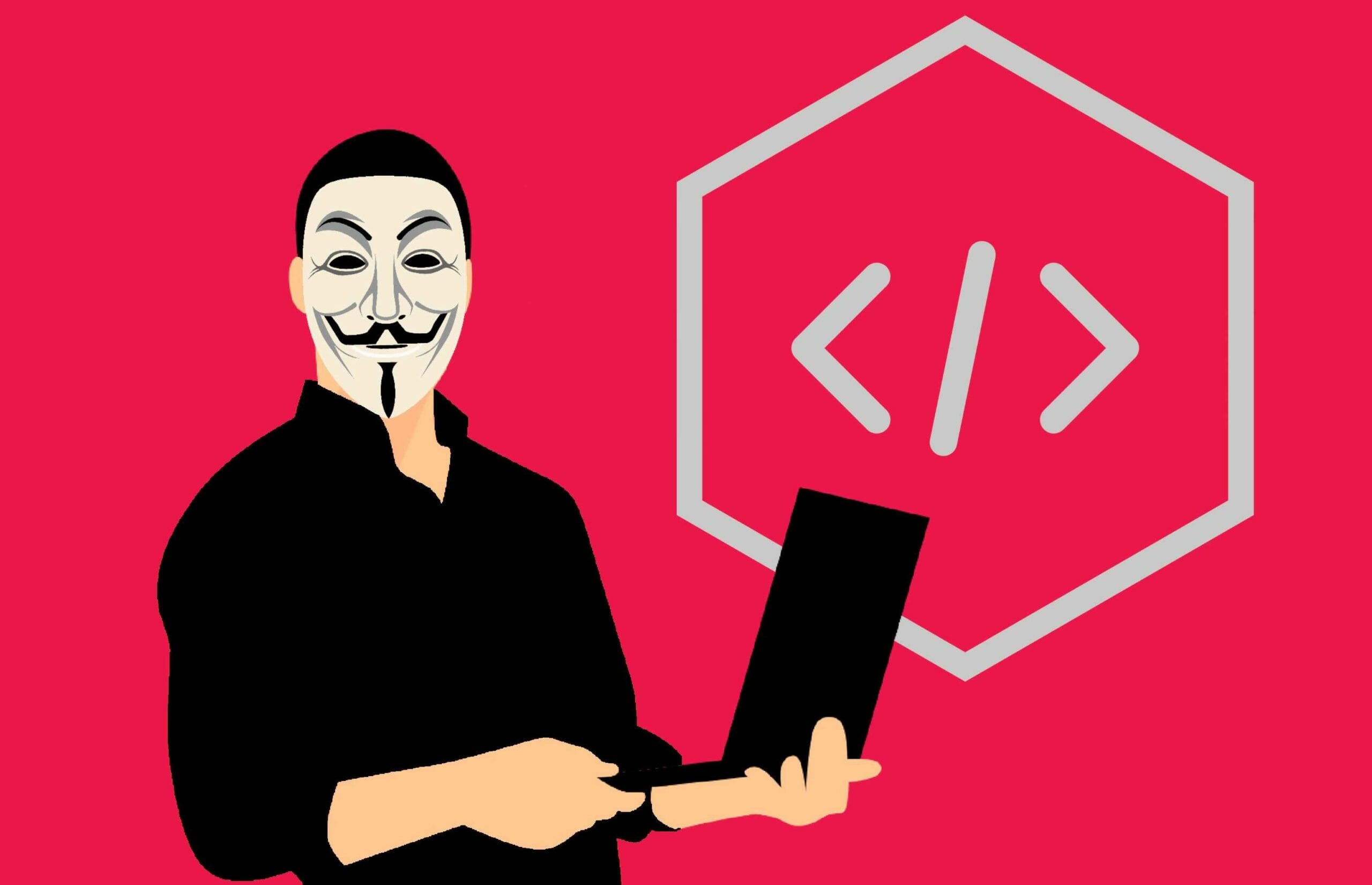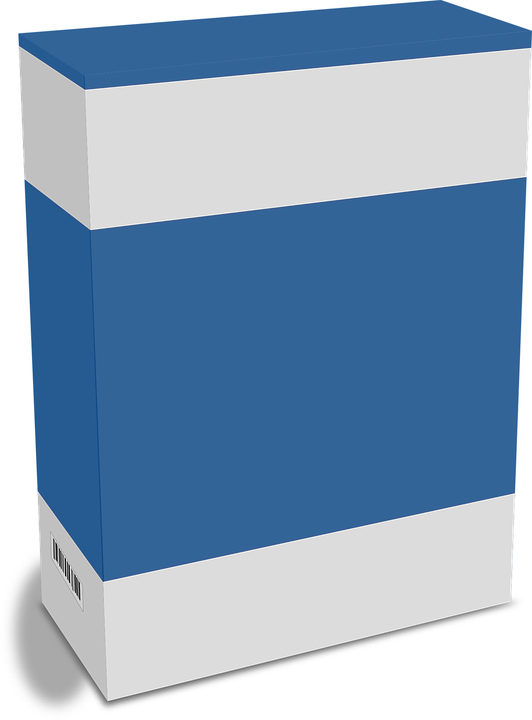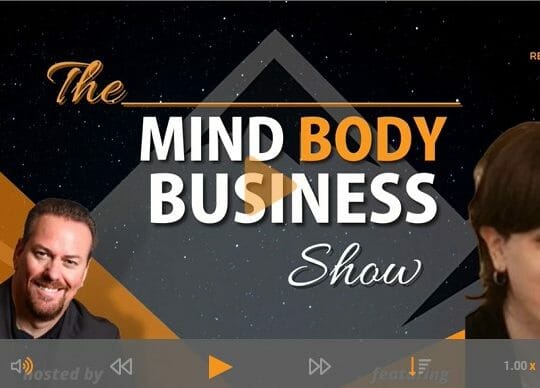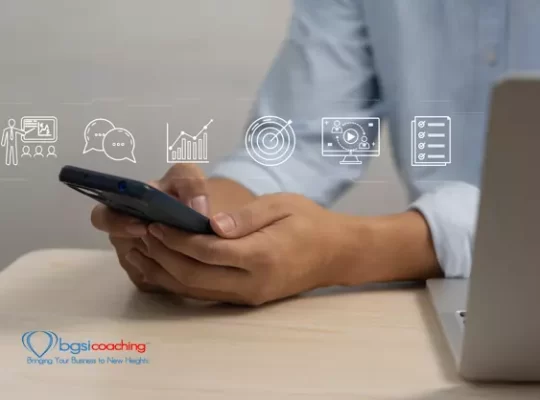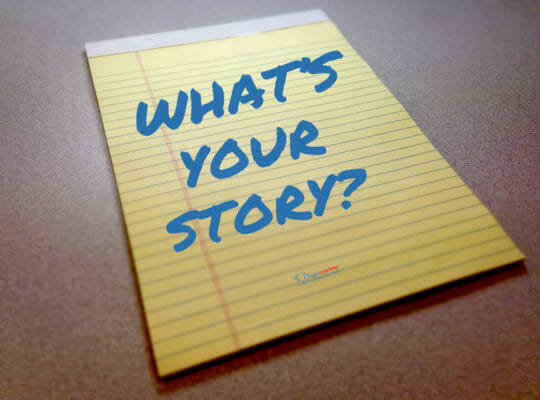In this episode, Jennifer talks with Jesse Tayler about our online identities and how there are people who attempt to steal our identities for their own nefarious uses. Jennifer and Jesse also talk about why a program like TruAnon may be of benefit to us all to confirm and assert our online identities as part of our basic human rights.
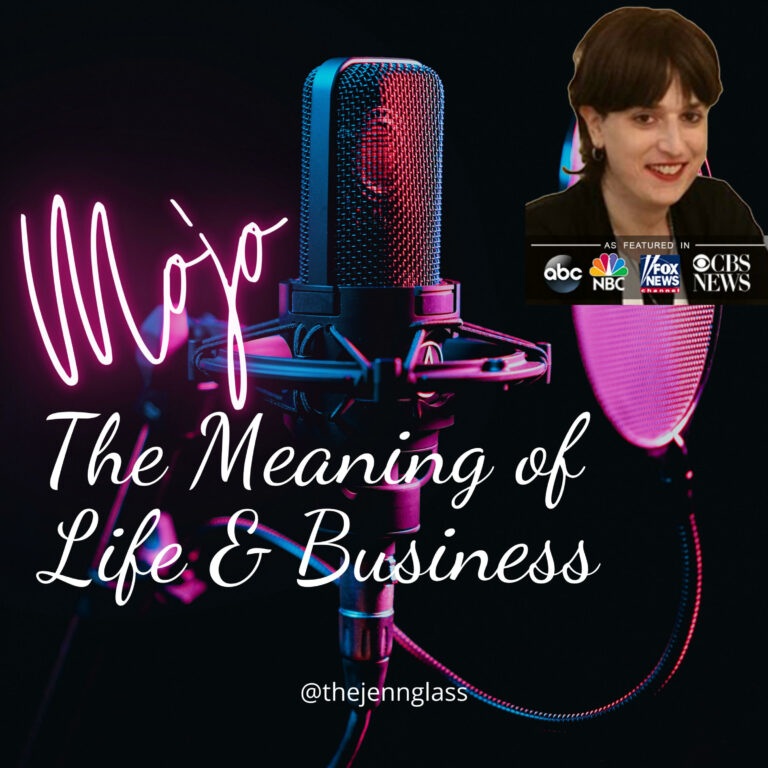
Life & business intersect in many places. After all, we cannot have a business without looking at the human component of business.
This podcast with Jennifer R Glass, CEO of Business Growth Strategies International & BGSICoaching.com is all about the meaning of life and business & the interesting ways they intersect. The show is for entrepreneurs and aspiring entrepreneurs on the search for what makes people successful and how to get there themselves.
Listen in as Jennifer & her guests dive deep into what makes people tick & how they make their businesses work for the betterment of others.
In this episode, Jennifer talks with Jesse Tayler about our online identities and how there are people who attempt to steal our identities for their own nefarious uses. Jennifer and Jesse also talk about why a program like TruAnon may be of benefit to us all to confirm and assert our online identities as part of our basic human rights.
About Jesse: Jesse Tayler is a lifelong learner, computer scientist, tinkerer of the web, and inventor of the “App Store.” Jesse is currently involved in a program to make your identity online safer and easier to work with. Jesse is thrilled to be helping mankind through his various programs.
Reach Jesse:
LinkedIn: https://www.linkedin.com/in/jtayler/
Email: [email protected]
Blog: https://jtayler.medium.com/
Web: TruAnon
#Privacy #DigitalIdentity #Fraud #HumanRights #TruAnon

Transcript (auto-generated; may contain errors)
Speaker 1 (00:01)
Hello and welcome to another amazing episode of “MOJO: The Meaning of Life & Business.”
(00:05)
We are joined today by a really, absolutely incredible guest. His name is Jesse Tayler. Let me tell you a little bit about Jesse. Jesse is a lifelong learner, computer scientist, tinkerer of the Web, and inventor of the “App Store.” Yes, that app store. Jesse is currently involved in a program to make your identity online safer and easier to work with. Jesse is thrilled to be helping mankind through his various programs. Jesse, thank you so much for being on the program today.
Speaker 2 (00:35)
Thank you, Jennifer. Thank you for having me. And the wonderful bio as well.
Speaker 1 (00:39)
Absolutely. Thank you. So, Jesse, let me ask you, what exactly is our right to Privacy? I mean, in today’s world, we’ve got so many different systems that are out there that are checking about us all the time. I mean, you even look, there’s questions down to even as it comes to facial recognition. Right? A lot of cities have banned facial recognition cameras and things along those lines. Law enforcement has wanted to use it. We always have to enter information online every time that we come to doing things as it relates to proving who we are. Can you tell me more about that? Because I know that’s where you’re really working these days in terms of helping us with our identities be safer and easier to work with.
Speaker 2 (01:36)
Yeah. A lot of the time we think of these as technology issues. We think of them as legal issues. At Truanon, we really see these as fundamental human rights issues. And once you sort of observe the human rights that are required, the logic, the technology, the legal frameworks, they really all stem from that because, of course, we are already who we are. Right? We are legitimate. And in fact, legitimate people are neither the cause or the people that we’re looking for. We’ve made an online world where identity proofing requires that we provide private information. That’s what makes private information valuable to be stolen. So when we say that there are three essential human rights, the first right is the right to Privacy. And what we mean by that is the ability to assert our legitimacy without the requirement to reveal or transfer private information. That’s the root cause of all the identity fraud and crime that we are Ironically, going through this process in order to somehow stop.
Speaker 1 (03:13)
So Jesse, when you’re saying the information, you’re referring to our personally identifiable information, like our Social Security numbers, things along those lines. Correct.
Speaker 2 (03:24)
The way it works is if I want to know who the person filling out the form is, it’s not your driving record that really is even the private information. It’s all the information you used to fraudulently claim that that driving record was yours. And the way this works is we ask you as much private information as we can. Your Social Security, where you used to work where you used to live. The more we get, the lower the fraud rate overall per million goes down because fewer fraudsters have collected a perfect example, a bucket of consistent private information. And this is kind of an endless war where once fraudsters have all of that information, well, we have to up the ante and ask you more. And the reason that this race goes on is because when we get up to the very large numbers of verifications, these fraud numbers are part of the cost and you must drive them down. So it’s not that they want to know where you used to live, it’s just that they love those questions.
Speaker 1 (04:52)
They’re small.
Speaker 2 (04:53)
Why would they care where I used to live and work? It’s not that they do it and they get very fuzzy results back when they look up your private information so it never matches. A person has to look over your private answers and the private information that they were able to look up about you. And this person has to make a value judgment over these submissions to determine if you are who you say. And of course, this is biased. Of course, this has a failure rate, and of course it is subject to fraud.
Speaker 1 (05:40)
So as it relates then to fraud and as it relates to our digital identity, so what we’re trying to do then, as one of our human rights is we’re trying to get more Privacy than in terms of what it is that we’re doing. Right? That’s basically the idea of what we’re talking about, where we want to go now.
Speaker 2 (06:05)
In fact, if you look at it in the reverse, it’s quite obvious. If we require people to produce more and more private information and that has only been going up, where does that all end if we think it’s bad right now? So if we do not begin with the right to being able to assert our legitimacy without revealing or transferring private information, we’ve already lost. But there are three essential human rights that have to work in tandem. You have to have a right to Privacy in order to exert the right to self-identify. Right. It’s almost part of the definition. And what we mean by the right to self identify is genuine identity that is free from ID cards, review, bias, approval, authority, right. Our identity does not come from a driver’s license, a passport or a card. We used to fish. We are already who we are. And so the second of these three rights builds on the first. We must have the right to Privacy so that we are not exchanging private information. And we must have the right to selfidentity identify so that we don’t end up in a queue waiting for somebody to pass judgment every time we need to reassert our identity online.
Speaker 2 (07:55)
This was never something that we had to do in the real world. Right? You walk around and you do the things that you normally do, you don’t have to constantly pass and Repass gates. And if you did, you wouldn’t have to go through all these private questions. And I think the third element that really binds these all together, the right to Privacy, the right to self identity has to be the right to self ownership. In other words, when we give services, however kind and generous they may, however well meaning a government entity may be, when we give corporations our identity, our identifiable parts online, we lose control. And so we have a right to self ownership where respectful separation of our identity, just the identity part from profiles and accounts in a way that assures owner control. Right. This is a matter of wiring. It’s a matter of insulating our identity so that we do not have to have these same private questions, these same claims, the same gates over and over. We can bind the things that we certify in perpetuity if we own our own identity. And so it’s interesting because most people at this point of the conversation are going to think wallet bucket safe, a place where I make copies of my private information and I store them under such extraordinary Fort Knox level encryption.
Speaker 2 (10:05)
Right. Let’s imagine a digital Fort Knox. Well, all the bank heist movies show people getting in there. And the reality we see around us is that every kind of magic encryption that’s come before has eventually resulted in our private information being leaked and used in crime and fraud and costing all of this identity problems that we face. So what we have to be able to do is offer legitimate people the tools of truth rather than spend all our energy trying to find the fraudsters, the bots, the people that are gaming this network. And actually, if we enable people to be who they already are in a way that they already have everything they need and they own their identity, all of these problems that result from fraud, these crimes, the liability that services have to endure in order to offer a badge of trust. These are Privacy invasive processes. And so if you are able to create something that logically enables the right to Privacy, the right to self identity, and the right self ownership, then you’re able to isolate and keep the identity separate enough so that people control what is theirs. This is a fundamental human right.
Speaker 2 (11:48)
That’s how we’re safe, by leaving us in charge of exactly how the world sees us, and we own and control our identity. When you make copies of private information and you open up your wallet and you have information put into this wallet, there’s no magic encryption that will keep that safe. And in fact, all we end up doing is making the call centers of banks the place where identity fraud then get them to put your private data into somebody else’s wallet. And once that is done, digital copies of files are not like files in a cabinet. They are traded in perpetuity without possibility of detection until, of course, they’re caught using your private information to go through some door. But you know, you’ve already violated the Privacy by making the copy. We have to leave information where it resides, curated by the owners and controllers whose job it is to maintain that data for you. So when you make a copy, you forever violate the protection that they maintain for you and they can’t even detect it. You’ve made the first undetectable copy and now you’ve taken it away from the people whose job it is to secure your private information.
Speaker 1 (13:38)
Absolutely. And it’s funny because as you were saying that I was reminded several years back, there was a movie, Jason Bateman and Melissa McCarthy Identity Thief, where Melissa McCarthy called up Jason Bateman’s character and asked him, hey, Sandy, there was an identity leak, something along those lines on your information. And we want to give you free identity monitoring. And all I need is your name, date of birth and Social Security number, and we’ll give you $0 identity monitoring. And that’s exactly the kind of thing that you’re saying that happens. And of course, most of McCarthy was able to become Sandy Patterson and commit crimes and rack up 30 something thousand dollars in debt against his credit. But let me ask you, Jesse, when we go into a bank. Right, and you were saying now the bank becomes a central repository of our personally identifiable information. But the banks, when we go in under current US banking law and the Patriot Act requires us to give all sorts of information to confirm who we are because they have to do their KYCs know your customers in order to make sure that we are who we say we are.
Speaker 1 (15:05)
Now, you said there are three basic human rights, the right to Privacy, the right to self ownership, and the right to self identity. But as it relates to banks, before we even talk about digital properties, banks are using this information and they’re just using it to open up a bank account where we’re putting money, whether we’re putting in cash, we’re putting in checks, we’re putting in currency that the bank already knows is legitimate money. But in order to make sure that we’re not doing anything illegal with trafficking or terrorist money or whatever, we have to make sure we’ve got that. So is that something that is going against this kind of right to self identity, right to self ownership and right to Privacy, or is this something that the banks are looking at it that we have to agree there’s some necessary evil, if you will, in terms of that process.
Speaker 2 (16:05)
It all depends on how much knowledge they have about the possibility of these rights. What they complain about is the fraud right. And the reasons people make fraudulent bank accounts are varied. Some of them you mentioned, they all have to do with somebody else being responsible for whatever crimes you’re planning. So you could simplify bank fraud down to this one motivation in one way or another. But imagine where we were turning the century even or just before. Your driving record is a file, a piece of paper, it’s in a cabinet. And somebody who curates it there at the office of the DMV gives you an ID card that represents that. And this has your name and your address. You walk into a bank and you say, Hi, I need an account, and who do I sit down? Oh, here’s. This person is a professional. I’d like to build a relationship with you. I see you’ve walked into our branch. I see you live next door. It’s easy for you to simply take out your license. You’re not jumping through Hoops. You’re not transferring private information. They might even make a Xerox copy, but that goes into a file cabinet.
Speaker 2 (17:39)
It isn’t transferred indefinitely. These kinds of things, this happens over time as we become more and more online. So we take the process that we used in the real world because it worked really well. It’s been out there a long time. It was working fine. But this digital generation came up literally from the last 20 years, okay? And in that time, it went from an occasional or not at all ability to start a new bank account to basically after COVID, nobody goes into a bank anymore to start their bank account. They do it online. They do everything online. And so the number of proofs, identity proofs is increasing and the amount of private information is increasing. And the more we force people to do this form of identity online, the more this crime and fraud increases, which is a great irony, because, of course, this is what we’re trying to prevent by going through this process. So the problem becomes, how can you stake a claim to who you are? How can you answer questions to private information without violating those first three human rights? And if you always go back to that platform in order to solve the problem, you can’t build a wallet, you can’t make copies, you can’t solve identity using all of this private information.
Speaker 2 (19:35)
You have to find sort of a digital counterpart. And in fact, this is very much like the original App Store in 1990, you had to drive to a store called Egghead where you would buy a piece of software that came in a box and it had a big book and some embarrassing little floppy disks. And you were expected to go ahead and install your own software, troubleshoot, installation, and get it all configured and secured because that’s the way people bought things. Okay? And I think the same is true with identity. We have a law where banks have to know that you have a certain government issued ID in the US. You have to have one of those in Canada. You have to have one of those for Canada, right? This is what government banks are obligated to do to get the insurance that they’re able to provide. And they have a lot of fraud online. Somewhere around one to $3 trillion is lost because people are so easily able to fraud through their way through these identity things. So what if you have these three basic fundamental human rights? What you would do in that case is you would have a digital identity, but it would be separate from any of these either question or answer entities.
Speaker 2 (21:13)
So if your bank wants you to prove that you have a driver’s license, you don’t need to transmogrify a picture of an ID card and take a ton of private questions and have that processed in order to make a biased value judgment that’s sometimes wrong. In order to get that person a bank account, it is possible. Since both of these parties have a respectful separation of the identity, then an identity could confirm ownership of both the controlling account here at the DMV or wherever it is I pay my parking tickets and my application form for a loan or for a bank or a new account or whatever it is that I have to do online to live my life. Okay. And this identity, respectfully separated from both, can then privately broker just the answers to the questions that this party needs. Does this person own a license? Does it work? Is it real? And is there anyone else claiming ownership already or any other problems with it? And so True and on algorithms are able to create that situation where you can broker the answer to this question, but neither party really has access that you didn’t grant and that you can cut off.
Speaker 2 (23:02)
True and on creates a circuit. It’s almost like a direct current where information flows one way. But each one of these stakeholding parties has wiring going through that they can see and they control and they can cut that wire if necessary. And if your driving record is changed at that moment, the person asking is getting information that is real time from the source. So this actually helps all of these parties if we are able to construct something that attains those critical human rights. And once you do it, things start to work differently.
Speaker 1 (23:53)
Okay, so let me ask you, as it relates to our online identities as well. So our online identities, we’ve got Facebook, we have LinkedIn, we have Twitter, we have Snapchat, Pinterest and stuff. You name the platform we are living in online world. And some would say that the millennial generation are even more online than any generation before them in terms of sharing as much information out there. There’s a lot of our Privacy that we simply don’t own anymore because we are voluntarily giving up all that information the minute that we post. Hey, this person checked in in California, but we live in New Jersey. We live in New York, whatever it is. But now the entire online world knows we’re out in California right now. Now, anyone that is up to no good that is following you may be able to know how they’re not home. Now may be a good time for me to break in, but we’re not talking about that because that’s a whole other Privacy conversation altogether. But as it relates, though, to the Privacy and confirming who we are online, can you tell me more how true and on addresses that particular situation?
Speaker 2 (25:31)
Yeah, I think there are really two things. One is, what do we do about the information that is intentionally public, that is maybe unintentionally public, and of course, the information that is explicitly not supposed to be public. And I think the interesting and quick logical response is that by adhering to these human rights, by centralizing and separating that identity, you also give centralized control. Imagine end of life situation. There is one place where you could turn off any and all of these external things simply by signaling from that center hub. This is a switch that everyone must have access to. Again, we go back to copies versus continuous circuit of one way information. Part of making that circuit is the fact that we want control over that circuit. Okay? And that means we want to be able to control what of it is visible if things get out or are mishandled or we simply evolve and move on in life. We don’t use a lot of the tools that we did 20 years ago. My kids won’t even know what half of those even are. So when we create content, we also need ways to sort of turn it off.
Speaker 2 (27:23)
And part of distributing ourselves into thousands and thousands of profiles and accounts is that the only one thing that we can own and control amongst all of them is that our identity is the one that is responsible for these. And so, again, you work out logic based on these human rights and you find that there should be a wire that goes right through my living room and I should be able to cut that wire. It’s part mine, and everybody has control of the switch at their own doorstep. So part of how true non was created was thought experiment. I met my wife over 20 years ago on Craigslist in a dating section that is still common today. You make an anonymous post and you can use email relay to communicate back and forth until you feel a sense of comfort that the person you’re talking to is obviously real enough and is not there to harm or scam you. This does not end up being a reliable way to date. And that section of Craigslist has since been censored by violating human trafficking laws. And I think it is an irony that some 20 years later we thought we were so smart that all of these there’s 100 times more fake than real.
Speaker 2 (29:08)
It’s almost like finding a needle in a haystack to find the one or two real replies out of the hundreds that would be on this thing. And we sort of thought, well, it’s just a bunch of pickpockets and they’re all pretty obvious. Well, this last year, my wife and I, who now have four little children, were in New York City living in Midtown, and man, did we have to get out of these kids, out of the city. We were under lockdown. Airbnb is shut down, and we are getting desperate. Times are getting tough. And what happens? Somebody has all the answers they need to make it seem exactly like they are the legitimate owner of a house that they then get a deposit on so that we can make sure that we have this space and they just know exactly where to siphon their people. And when you get to the house and you see the eleven young people who actually are renting the house from some lady that they communicated with and you know, this money is gone, you look back and you say, well, when did I really know that this was fraud?
Speaker 2 (30:29)
I had some sort of feeling in the back of my head. But we’re all vulnerable. At some point in our lives we lose as Americans of tens or hundreds of millions of dollars on romance, fraud. It’s the exact same thing someone somewhere else poses. Not as one drunk girl at a bar who thinks you’re attractive, but as 400 of them on 20 different dating sites and maintains 1000 conversations at once, all to find several of you a month who not only pay their rent but actually buy them pretty nice looking cars. This industry has grown from a couple of pit pockets and weird Sharks on Craigslist dating section to crimes that include extortion, rape, and murder and to dollar volumes that have created an industry of crime. We swim in it. Why?
Speaker 1 (31:37)
That’s a really scary thought, if you think about it. So let me ask you, when we look at how true and on comes in and we look at how true and on helps us to mitigate those risks because we don’t want to be playing in the shark infested waters, if you will. How is true and on changing that landscape for us to make sure that we’re not going to be falling prey to all of these people that are trying to get in our wallets, in our homes, in our identity, to do anything else that they may want to do otherwise?
Speaker 2 (32:21)
That’s a good question. And there’s really two sides to this. One part is the social side, right? Why is propaganda so popular on Twitter? Why does social media seem to have the effect of dividing us and of providing such misinformation when we’re supposed to be in the information age? We seem to have made a misinformation age. So there’s a social aspect to what’s going on with identity and masquerading and being somebody who looks like a neighbor, a friend, a fellow citizen, a voter who shares my values and life system. And then there is a business aspect that we simply do things online. And again, when we take the bank incident, where I used to walk in and show a license, something that just worked well, and we transmogrified it into the digital world because that’s what we need to do. And that has created an enormous industry of fraud and has risen the value of private information from nothing to extremely valuable. So we have these two questions. Let me just first, by saying the social aspect is something that every single consumer experiences, we all want virtually every service that we use to have a higher degree of genuine membership.
Speaker 2 (33:58)
Right. We want to have more legitimacy and we want to be able to assert our own legitimacy. Take an example, like Twitter. Now, Twitter offers a badge of trust, but you can only have access to this badge of trust if you’re famous enough. Now, you might think, well, Twitter needs famous people on their platform, and we need to know whether this person is really the famous person or some comedian or some fraudster or whatever else. Right. So there’s a legitimate need for all involved, but it doesn’t make a trusted ecosystem. I’m still bombarded by fake profiles and their fake parenting of propaganda and advertising and other kinds of things. So what we have is a situation where you see big tech like Twitter dragged before Congress, right. And they have no answer over fake profiles. But it turns out this is the very reason that we were talking about before. If you have anything to review, no matter how fancy your AI is, some of these fraudsters fall through. Sometimes people have to get involved. There has to be a queue where an authority reviews you. And as long as that exists, this takes time.
Speaker 2 (35:42)
And if you were Twitter and you let everybody have a badge of trust for their profile, the queue would be 22 years long. So you simply can’t apply real world physics to the digital universe. Again, go back to that first app store. If you have gotten millions of boxes and shipped them to all these stores across the country, across the globe, and you find out you have one bug in your software. Now, you have to do that all again. And one of the stuff that’s already out there, it has no value. So there is an extraordinary difference between transmogrifying what we did in the real world and something that is a pure digital solution. And again, I go back to these three essential human rights. You must not be asked for private information. You must not be asked to have someone else curate your identity for you.
(37:07)
Okay?
Speaker 2 (37:07)
That’s your ownership. You must own it. Finally, all three of these things together self identifying, private and self ownership have to work all together. But if you make all of those things work together, everybody’s happier. The bank doesn’t have the fraud. They go back to the life they used to have before COVID, before the web, and people began to harass them online. These are services that they have kind of been dragged into. And now they have these fraud problems that are trillions of dollars. So whether you’re talking about socializing a dating site, trusting someone on ebay, trusting someone on Craigslist, or you’re just talking about reducing the outrageous amount of cost in order to have fraud and to try to avoid fraud when the thing that you’re paying to avoid it is actually causing more of the stuff that you’re trying to avoid. So trust me, banks would like to not be chasing their tail with that kind of logic.
Speaker 1 (38:28)
Absolutely. So, Jesse, let me ask you. The App Store is definitely one of the really interesting stories. You mentioned the egg head issue and going and all the bugs and things along those lines. Tell me more about, though, how you got to Steve Jobs, how Steve Jobs decided to buy the App Store from you. Tell me more about that experience, because that’s a really interesting story.
Speaker 2 (39:01)
Okay, you’re right. A lot of entrepreneurs may be listening at this point of the podcast. And I’m just going to let you folks know. Sometimes you make demos because this is the big sale that’s going to put your startup on the map. Sometimes you make demos because you need somebody to do what you wanted to do. So understand, first of all, this was the fire sale demo that I did not want to do. But I was also the person on our startup team who was at the trade show that we had hoped to get our message to Next. And they weren’t coming by our booth. They were going all the important places. And so at some point, I simply approached Steve Jobs and I said, Hi, I’m Jesse Taylor, and I have invented something that you need to see how it works. And so he stopped what he was doing, and he looked at me for a moment to see if I was serious. And I’m 20 years old. So I’m damn serious. I’m mad. And so he simply says, okay, do it now. And so I walked him through our presentation, which I knew very well, and I wrapped it up and I said, so there it is.
Speaker 2 (40:42)
This is electronic distribution. I think this is essentially gives everybody access to every piece of software we get rid of. The media prices. For those of you who don’t know, Next did not have a floppy drive. So distribution software was an exceedingly difficult problem. If you thought it was already hard for egg head, imagine this computer. So this was the only way to solve it. Steve immediately understood that. And he has a capacity that I have never seen since in any VC or any sort of tech oriented business person. Steve Jobs had a unique capacity to understand and apply vision fearlessly to his own intuition. And he was able to absorb without bias something that a 20 year old could teach him, because that 20 year old is absolutely sure they know what they’re talking about. And they busted their ass on this software, and he should see it now. Later in my life, I’ve had a lot of startups. Many of them have failed, but a lot of them have ended up being other sorts of inventions that are used by everybody. And for software inventors, this is immortality. But it’s a rare privilege, I think, that you get to shepherd to market an innovation that is logic, that is software that can affect not just crime, but people’s lives.
Speaker 2 (42:40)
You look at what happens on dating sites. You look at what happens on Craigslist, on the dating section that is now censored by the government, and you realize that this is as serious as life is, and this is as serious as the online world. And we sort of treat it as though it is the same. It is not. It has a different balance. It is a different universe, and we can protect ourselves in powerful ways, and we can attack each other in powerful ways. And right now, we’ve built a futuristic world where we can communicate in ways that are absolutely extraordinary beyond Star Trek. Those guys didn’t even have maps on their phones. We are in an advanced world, but somehow we have bombed ourselves backward to a dark ages where identity is more like a medieval town where I could March in with some nice clothes and announce, I’m Duke of something you never heard of and just sit down and have a free dinner at the nice restaurant in the middle of town. It’s an irony that this digital age that we’ve built is so off kilter. We push so hard to create a way to communicate and a way to socialize, and we forgot all about human rights in the digital world.
Speaker 2 (44:25)
The digital universe.
Speaker 1 (44:31)
Got it. So let me ask you, Jesse, I understand that you have an offer for our listeners today as a thank you for listening. Can you let us know more about what that offer may be?
Speaker 2 (44:48)
Yeah, of course. I expected the offer part. So, yes, of course. We love their listeners. And in fact, we just finished an early adopter period where by if you have a community of trust that could either the brand or even your service itself could use the kind of trust and accountability or at least a Privacy conscious alternative to something you may be using today, there’s certain limitations, I think maybe 100,000 verifications or a million verifications every year. But if you would like to have access to this stuff along with some degree of support and hopefully also be part of some PR efforts, especially if your service is interesting, then please do reach out to us now because that is still going on and we would love to extend that offer.
Speaker 1 (46:04)
Super. Thank you. And how can people get in touch with you? How can they learn more about you?
Speaker 2 (46:11)
You are absolutely welcome to connect to me online. I have all the usual places to be stocked. I would advise perhaps starting at LinkedIn where you will find me under J. Taylor. Now this is T-A-Y-L-E-R, not O R, just to keep you on your toes. So I’m collecting dimes for every time that’s been misspelled and going to retire on that very short. The same JTaylor at Truanon will get you right into my email inbox or SpamBox. So if I don’t seem to answer, feel free to Ping me socially. I do have a lot of followers on LinkedIn, so if I don’t respond to you right away, I think I still have it such that you can just message me anytime you want. So feel free to stop me there or wherever else you may find around. My social profiles are consistent, as is my True and on score for confirming them.
Speaker 1 (47:29)
And you’re also on Medium also, right? Jesse.
Speaker 2 (47:35)
I’m not a writer, but for those of you who are knowledgeable about the subjects of protection, safety, online, Privacy, all of the issues that you’ve heard us bring up as we try and define how to solve this free trillion dollar problem that we face if you are an expert or even have something to say. There are several blogs in there. There’s also several blogs in our True and on company profile in LinkedIn. And these represent sort of the different types of thinking and points of view as that evolves and as we’re trying to help people understand what we’re bringing to market. So on Medium, I think you can hit Medium at JTaylor or just JTaylor medium.com. We’ll get you there. And I think just spell Prun correctly, which is Truanon.com, and you’ll find it not Q Anon, which is the opposite. So if you type in that into LinkedIn or Google, you will find essentially the anti True Anon. Be sure to spell it correctly and you’ll have no trouble finding our page, our site, our service. The service itself, by the way, is completely open to the public. There’s not really a way for folks who want to create their account on True and On.com. You can imagine True and on really isn’t anything at all True.
Speaker 2 (49:33)
And on is your identity from within the site or service that you are already using. And that’s where that whole experience really occurs. That’s where the motivation to assert your identity and the whole purpose of it. So it’s really a brand. That is the service that you’re using. And so if True and on is already part of the community you’re in, go ahead and use it. If it’s not, then reach out to the folks who run your community or whatever it is marketplace and we’ll help them get that set up.
Speaker 1 (50:18)
Great. Thank you. And Jesse, I want to thank you so much for being on our program today. If you’re interested again friends, make sure you follow Jessie on LinkedIn you can reach him by email. Also follow him on that medium blog that Jesse mentioned and of course at true and on.com truinon.com check it out. If you’re interested in finding out more certainly reach out if you liked what you heard, please make sure you leave us a message. Let us know and until next time, here’s to your success. Thanks so much.
Speaker 2 (50:59)
Thank you.
About Jesse: Jesse Tayler is a lifelong learner, computer scientist, tinkerer of the web, and inventor of the “App Store.” Jesse is currently involved in a program to make your identity online safer and easier to work with. Jesse is thrilled to be helping mankind through his various programs.
Reach Jesse:
LinkedIn: https://www.linkedin.com/in/jtayler/
Email: [email protected]
Blog: https://jtayler.medium.com/
Web: TruAnon
#Privacy #DigitalIdentity #Fraud #HumanRights #TruAnon

